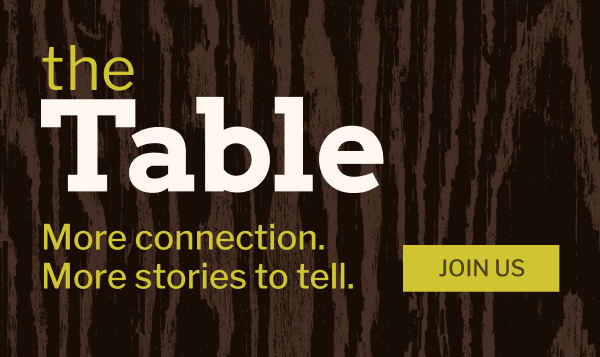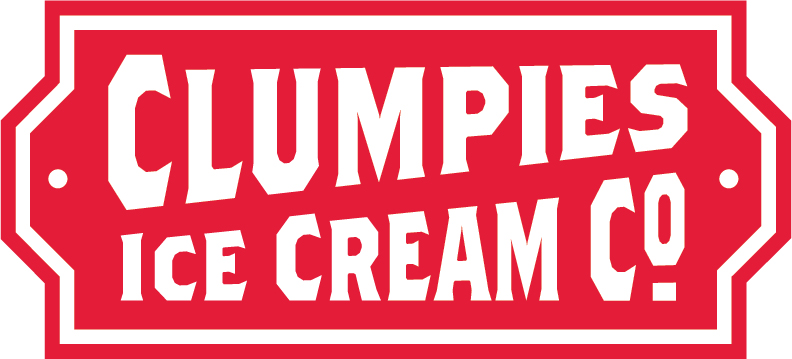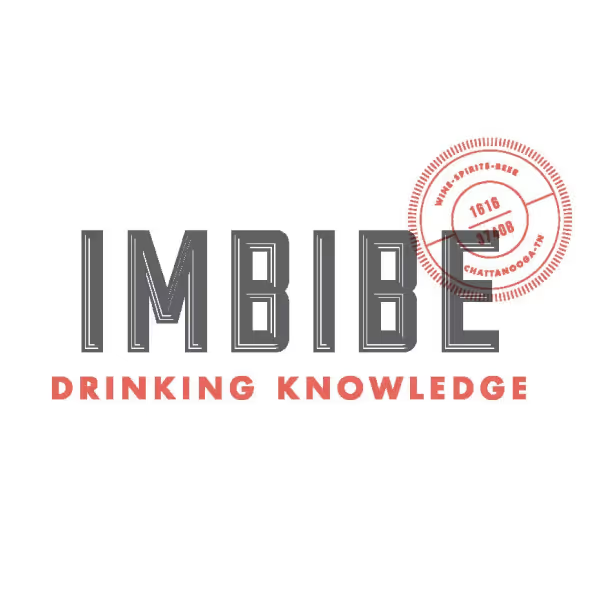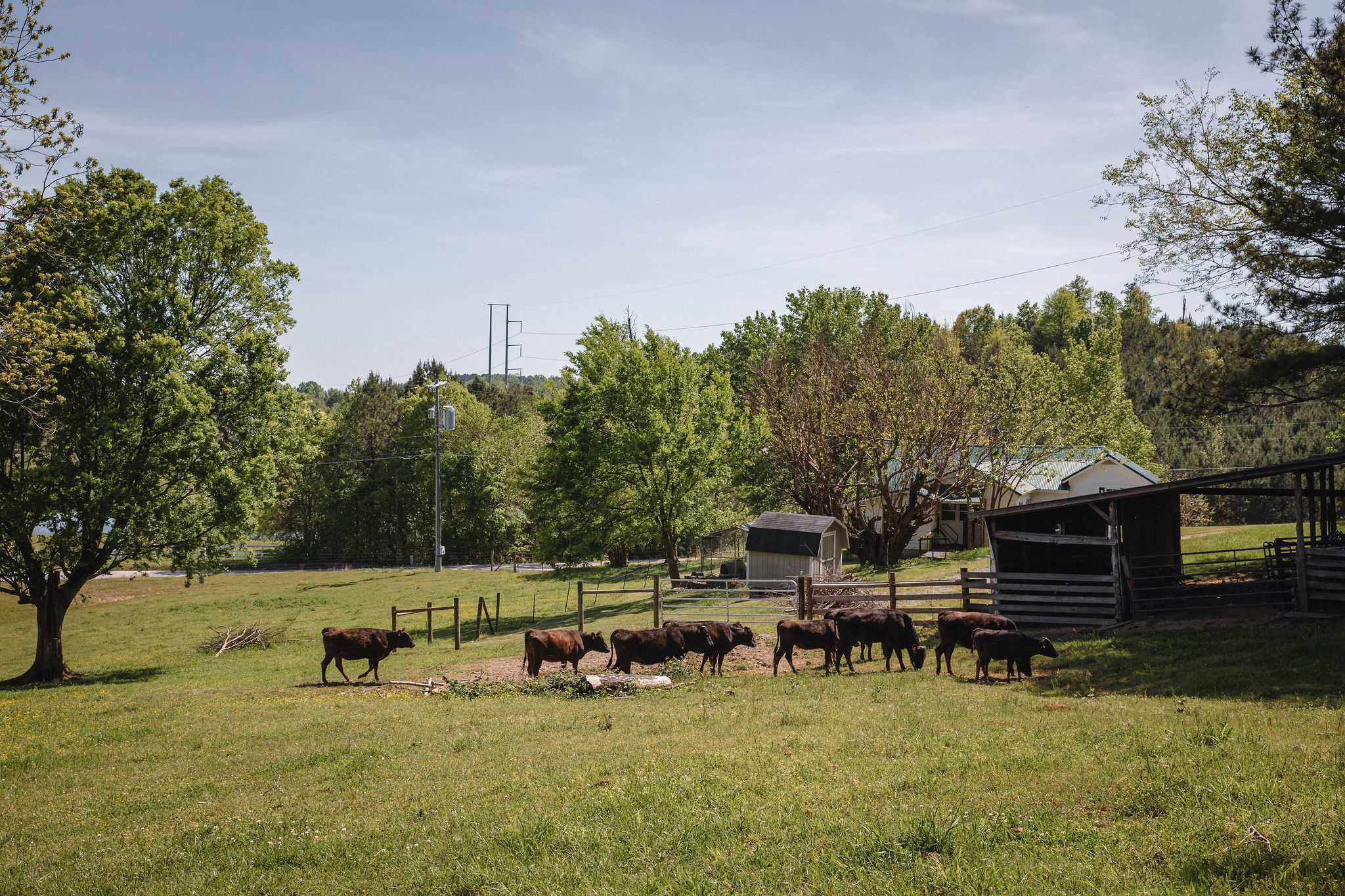
Cattle Prices are Soaring. Let's Start Farming, Right?
One farmer explains why not.
Food as a verb thanks
for sponsoring this series

A few odds and ends before we - with cattle prices through the clouds - become cattle farmers.
First, thanks. All your love after Sunday's father-daughter-college story meant more than you know.
Second, a very happy birthday to Calliope, which turned three years old last Friday.
The restaurant is beloved, with that special balance between an avant-garde energy and the established groundedness of an institutional restaurant.
Earlier this year, Chef Khaled Albanna and Raven Humphrey signed a 20-year lease on the building, sending a huge statement to the region.
We're here to stay.
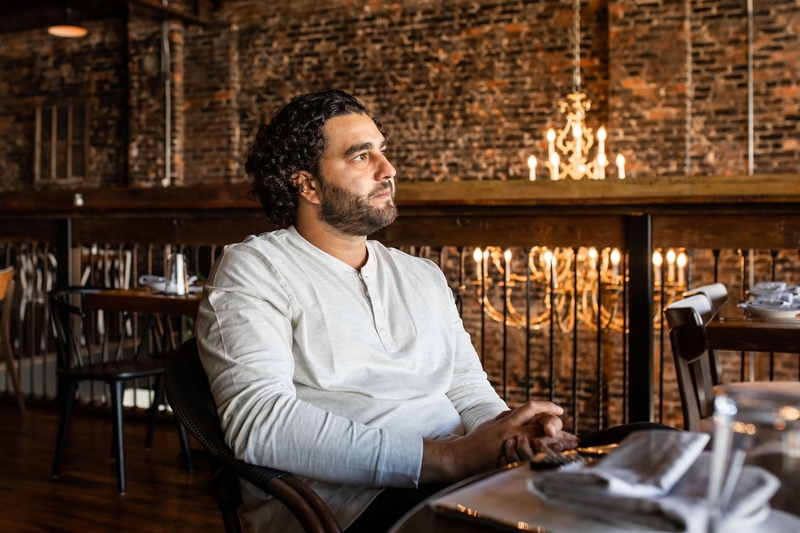
Speaking of Calliope and Raven, tickets still remain for Thursday's Little Coyote Speaker Series: "Women in the Industry: a Conversation with Raven Humphrey and Amanda Niel."
The event - featuring a full Little Coyote menu - is free; tickets - going fast - can be reserved here.
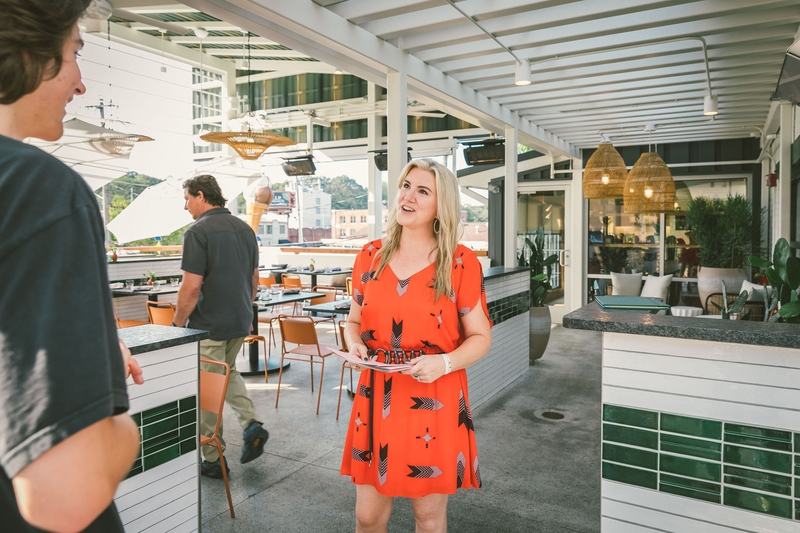
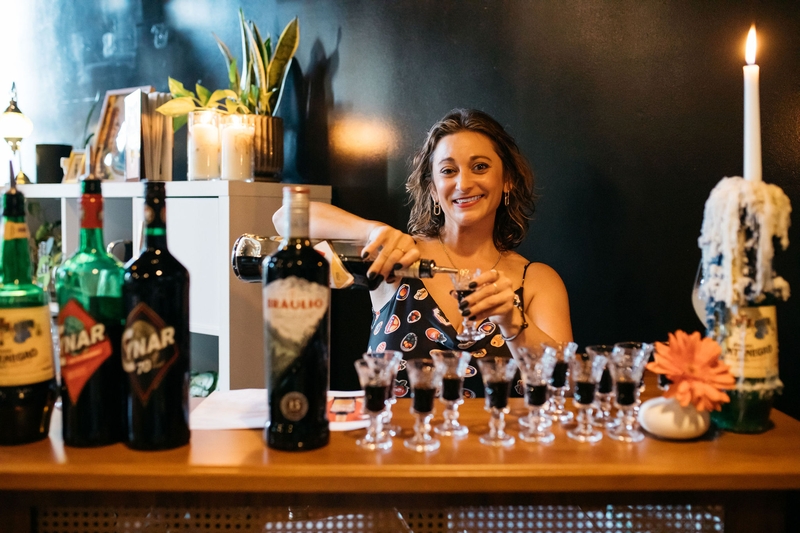
- This Sunday, we welcome back home an old Food as a Verb friend.
Ya'll remember, Brooks Lamb, right?
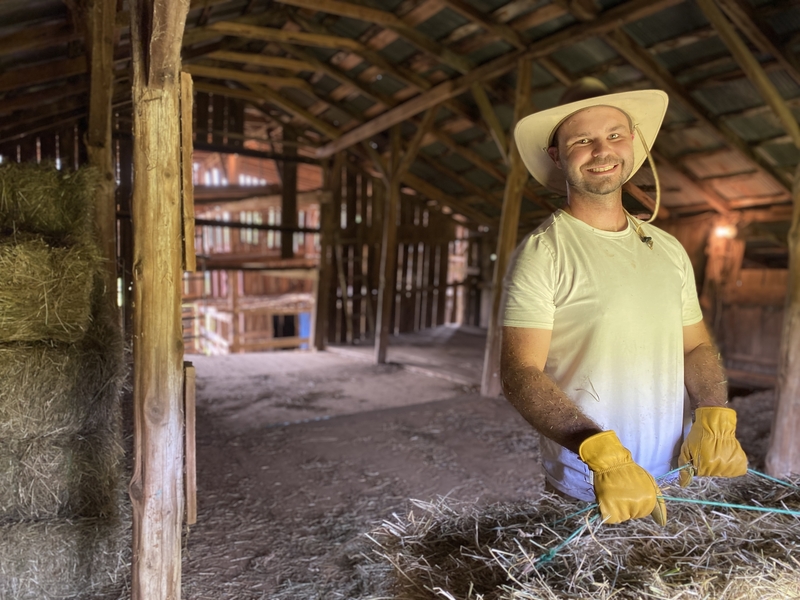
Yeah, of course we do. Brooks was our very first guest in our newly launched Speaker Series. It was a sell-out, packed-house, unforgettably good time.
Brooks is a man among men; a farmer, teacher, author and part of the American Farmland Trust team working against the crisis of disappearing farmland, he also loves music.
Tyler Childers, specifically.
That's enough of a hint. See you Sunday.
- Now, let's cattle farm.
Right?
Cattle prices are soaring. Last month, they hit record highs.
You might be wondering: is it a good time to be a cattle farmer?
"The agrarian myth," one friend said earlier this week. "Good luck with that."
He's a middle Tennessee cattle farmer, with 50 cows on 100 or so acres, give or take. We spoke by phone. (Asked to keep his name out of it.)
I started with a question: is it possible to make good money cattle farming right now?

"You won't ever pay for your land," he said. "You won't even pay for your interest, even with cattle prices as high as they are."
Then, he started penciling it all out. The costs. Oh my, the ongoing costs.
"One hundred acres of prime pasture land is probably worth $10,000 an acre," he said.
"If you're a young person and didn't inherit the land, you'll pay for it and the interest," he said. "You do the math."
Then, cows.
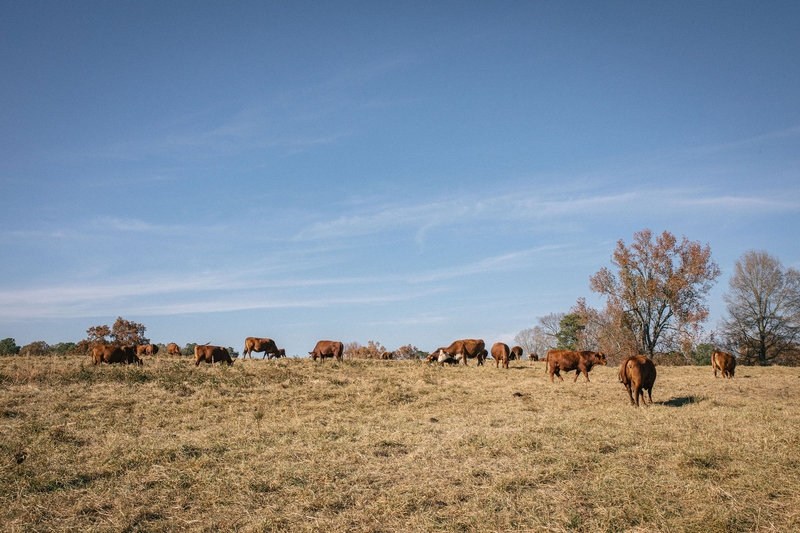
"Prices are so high, you'll pay $1500 for a cow-calf pair," he said, adding that on 100 acres, the stocking rate is 50 mama cows.
"Then, tractors. How are you going to cut your hay? Who's going to build your fences?" he said.
Not long ago, his 30-year old tractor broke down in the middle of his field. Cost $5,000 to fix it.
"A new tractor? It's $75,000, even $100,000. A new baler? That's $30,000. A new cutter?" he said.
The costs add up like leaning towers. Even with grants here and there, you're still - quickly - in debt that feels forever.
"There's a reason the national cattle herd is still not really growing," he said. "While cattle prices have gone up, so have production costs."
He said cattle farming has shifted demographics; the cattle farmer of today isn't the same farmer from yesteryear.
"Cattle farming is for people to own land and wealthy people to have a tax write-off," he said.
There is a foreboding sense that something is changing, declining, ending even.
"This is the end of the line," he said. "So now, this becomes a bigger conversation about land."
He says cattle farms will be converted into soybean-corn production, with its secured income through federal subsidies.
"All up and down the valley, the fences have gone down," he said.
"Cattle farms are becoming less and less."
Two more points.
First, the ongoing difficulty.
"Something's dying every day," he said. "It's an emotional rollercoaster. What's that rule when all the shit goes wrong? It will, I promise you."
He works one, sometimes two, off-farm jobs. Farming's been in his family for generations.
So, with all this debt and death and tractor trouble, why ... do ... it?
"Love," he said. "I grew up a country kid. I'm still a country kid. If we sold this land, we're done. There's no way in hell."
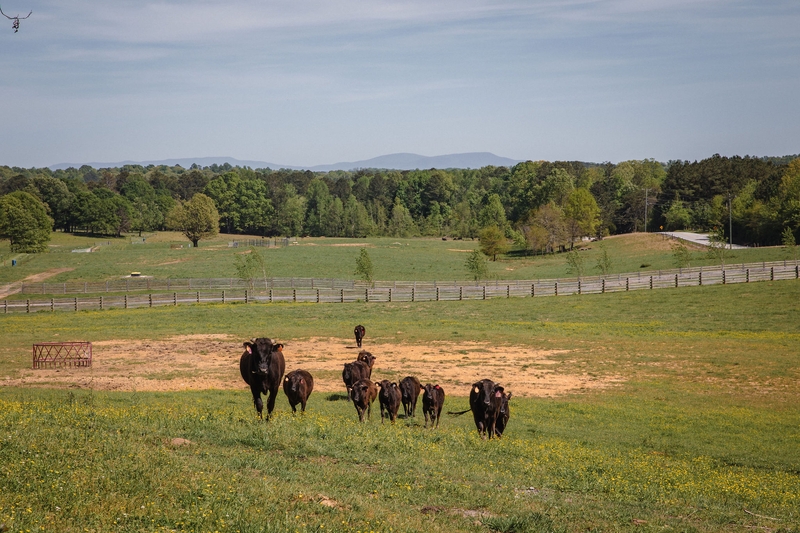
Story ideas, questions, feedback? Interested in partnering with us? Email: david@foodasaverb.com
This story is 100% human generated; no AI chatbot was used in the creation of this content.
A few odds and ends before we - with cattle prices through the clouds - become cattle farmers.
First, thanks. All your love after Sunday's father-daughter-college story meant more than you know.
Second, a very happy birthday to Calliope, which turned three years old last Friday.
The restaurant is beloved, with that special balance between an avant-garde energy and the established groundedness of an institutional restaurant.
Earlier this year, Chef Khaled Albanna and Raven Humphrey signed a 20-year lease on the building, sending a huge statement to the region.
We're here to stay.

Speaking of Calliope and Raven, tickets still remain for Thursday's Little Coyote Speaker Series: "Women in the Industry: a Conversation with Raven Humphrey and Amanda Niel."
The event - featuring a full Little Coyote menu - is free; tickets - going fast - can be reserved here.


- This Sunday, we welcome back home an old Food as a Verb friend.
Ya'll remember, Brooks Lamb, right?

Yeah, of course we do. Brooks was our very first guest in our newly launched Speaker Series. It was a sell-out, packed-house, unforgettably good time.
Brooks is a man among men; a farmer, teacher, author and part of the American Farmland Trust team working against the crisis of disappearing farmland, he also loves music.
Tyler Childers, specifically.
That's enough of a hint. See you Sunday.
- Now, let's cattle farm.
Right?
Cattle prices are soaring. Last month, they hit record highs.
You might be wondering: is it a good time to be a cattle farmer?
"The agrarian myth," one friend said earlier this week. "Good luck with that."
He's a middle Tennessee cattle farmer, with 50 cows on 100 or so acres, give or take. We spoke by phone. (Asked to keep his name out of it.)
I started with a question: is it possible to make good money cattle farming right now?

"You won't ever pay for your land," he said. "You won't even pay for your interest, even with cattle prices as high as they are."
Then, he started penciling it all out. The costs. Oh my, the ongoing costs.
"One hundred acres of prime pasture land is probably worth $10,000 an acre," he said.
"If you're a young person and didn't inherit the land, you'll pay for it and the interest," he said. "You do the math."
Then, cows.

"Prices are so high, you'll pay $1500 for a cow-calf pair," he said, adding that on 100 acres, the stocking rate is 50 mama cows.
"Then, tractors. How are you going to cut your hay? Who's going to build your fences?" he said.
Not long ago, his 30-year old tractor broke down in the middle of his field. Cost $5,000 to fix it.
"A new tractor? It's $75,000, even $100,000. A new baler? That's $30,000. A new cutter?" he said.
The costs add up like leaning towers. Even with grants here and there, you're still - quickly - in debt that feels forever.
"There's a reason the national cattle herd is still not really growing," he said. "While cattle prices have gone up, so have production costs."
He said cattle farming has shifted demographics; the cattle farmer of today isn't the same farmer from yesteryear.
"Cattle farming is for people to own land and wealthy people to have a tax write-off," he said.
There is a foreboding sense that something is changing, declining, ending even.
"This is the end of the line," he said. "So now, this becomes a bigger conversation about land."
He says cattle farms will be converted into soybean-corn production, with its secured income through federal subsidies.
"All up and down the valley, the fences have gone down," he said.
"Cattle farms are becoming less and less."
Two more points.
First, the ongoing difficulty.
"Something's dying every day," he said. "It's an emotional rollercoaster. What's that rule when all the shit goes wrong? It will, I promise you."
He works one, sometimes two, off-farm jobs. Farming's been in his family for generations.
So, with all this debt and death and tractor trouble, why ... do ... it?
"Love," he said. "I grew up a country kid. I'm still a country kid. If we sold this land, we're done. There's no way in hell."

Story ideas, questions, feedback? Interested in partnering with us? Email: david@foodasaverb.com
This story is 100% human generated; no AI chatbot was used in the creation of this content.


